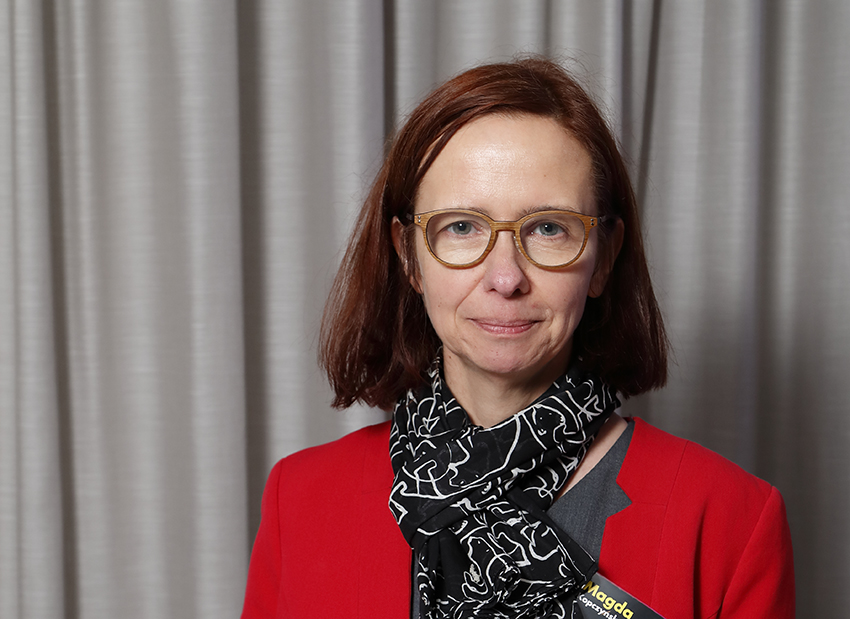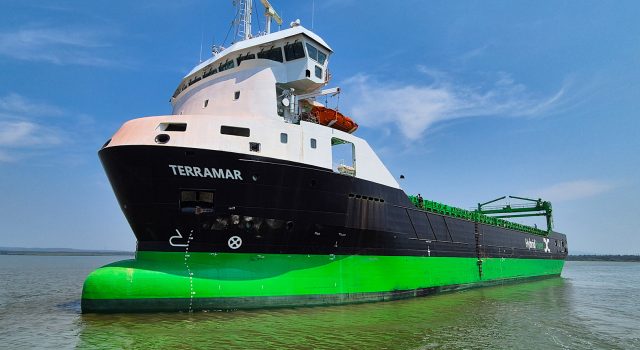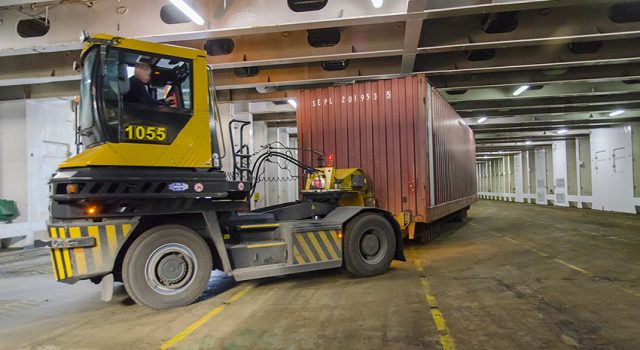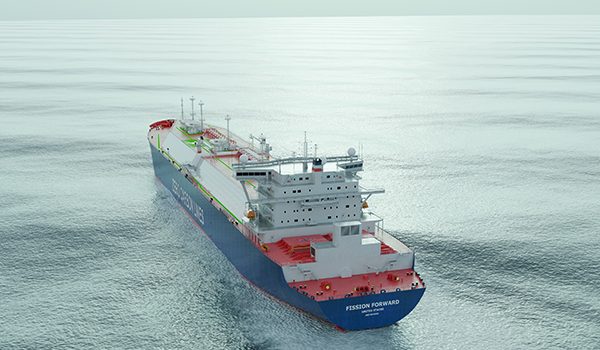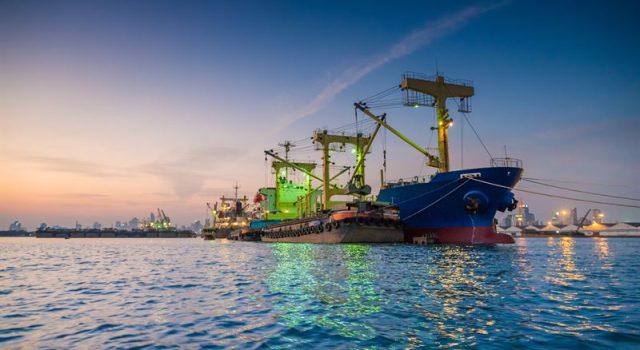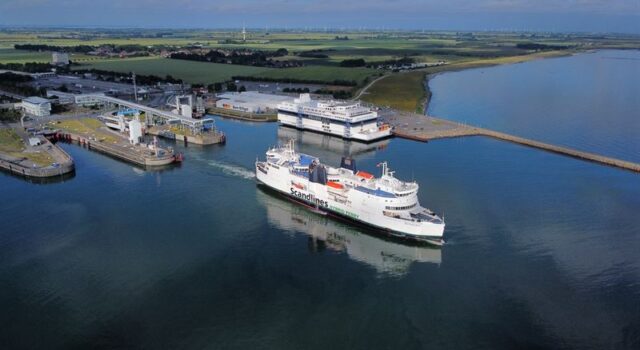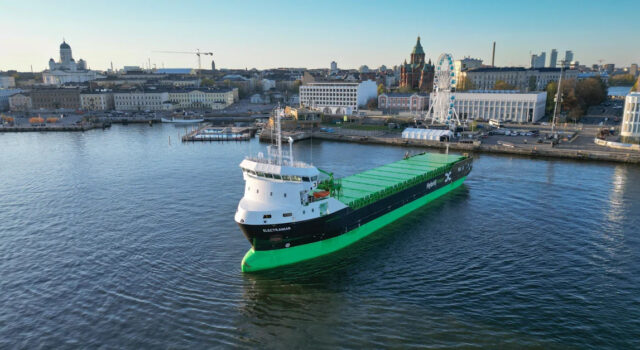“I haven’t got one answer,” said Kopczynska, Director for Waterborne in the Directorate General for Mobility and Transport of the European Commission. “Of course, there was a lot of discussion about regulation, whether we have enough regulation in Europe, whether we have the right kind of regulation.
“Nobody questions, and neither do I, the fact that maritime transport is a global business. So we need global regulation. But the European maritime cluster functions in Europe hence it is important to also recognize the role that the European Union can play. Hence my questions about the role the Commission could – and should – play.
“So my question again and again, but not answered yet, is what needs to happen to make sure the maritime cluster has access to new technologies, new solutions, better infrastructure, better skills and so forth.”
Few cluster leaders, she said, asked about finance during the round-table discussion. Instead, most of the questions she received involved European Commission regulation and cooperation within the industry.
“We’ll never have enough money,” she said. “There is always a need to make choices.”
Financial prioritizing toward reducing emissions, alternative fuel sources and more efficient energy, information technology, security and other concerns were also topics of discussion at the think tank. But few points were as salient as data sharing.
“Everyone saw big value in working together and sharing the data,” she said. “That is a very interesting point for me because I think in the shipping sector data sharing has not been as prominent as in the land transport modes, and in particular passenger transport.
“The idea that you need to share data to have new types of businesses is very present. That’s a very strong statement we’ve been hearing from other transport modes for a couple of years now. In the maritime industry data sharing is relatively new, the last two or three years.
“As always, my question back, to which the answer will differ depending on whom I’m asking, is, ‘What is the ideal approach that will allow the sector to make full use of the potential offered by digitalization and data sharing? Shall regulation come first or shall it follow innovative and breakthrough solutions, developed and implemented at industry level?’ “
Such industry-wide cooperation is necessary to keep the European maritime cluster competitive in a changing global economy, as is the need to reduce shipping’s carbon footprint.
As a regulator who was once head of clean transport for the European Commission, Kopczynska said, “If we had this think tank two or three years ago, the environmental discussion would have looked differently. Now, it’s good to hear, for example, from people in the Finnish maritime sector that because of the requirements for low-sulfur fuels that kicked in 2015, today they find themselves at the forefront of new environmentally friendly solutions.
“Now the big question is CO2 emissions, how are we going to work on it, how quickly will be able to respond and meet the targets. It’s not only about ship owners. It’s about ports, it’s about shippers, it’s about users.”
Kopczynska, who came to the European Commission in 2006, has been in her current post since 2016. Before joining the Commission, she served as Director of the Brussels Office of the Polish Private Employers Confederation, as well as holding positions within Warsaw local government.
She said she was impressed with the think-tank results, as well as Slush, the Helsinki-based start-up convention with which Breaking Waves was affiliated.
“Slush is overwhelming,” she said. “You have thousands of young people with ideas from across the entire life spectrum, from education to health to business to data sharing. It’s a question to companies to ask if they found something in Slush that was a surprise for them.
“For me, a definite takeaway was that we need to work together more and we need to work together slightly differently. Sometimes simply putting people around a table makes them come up with the right solution. I think that’s a bit of what Slush is about, to make people meet in one place and talk about ideas.”
Such was the goal of the think tank, which brought industry leaders together for the good of the cluster, however it is defined.
“I’d say we have European maritime clusters, and not just one European maritime cluster,” Kopczynska said. “Depending on where you go in Europe, we may have a slightly different focal point of such a cluster.
“Sometimes it is around stronger ports, sometimes it is around a stronger participation of technological providers, sometimes it has to do with a stronger presence of ship-management companies. But I’m not saying this diversity is wrong. Diversity is absolutely essential when we are talking about the EU.”
Kopczynska said industry leaders agreed on an overall vision for the future of the European cluster. But what does it mean for regulators?
“It’s a very difficult question to the EU Commission,” she said. “I can tell you what I would like to see the European maritime cluster look like and what I would like it to be.
“I’d like it to be European, I’d like it to support European companies, I’d like it support European research and innovations, technologies, European business and social models.
“The big political objectives, the climate and emissions, the overall environmental impact. And I’d like the cluster approach, as I said at the conference, to not have only one definition of a European maritime cluster that will be the same all over Europe.”
Text Michael Hunt
Photo Antero Aaltonen

